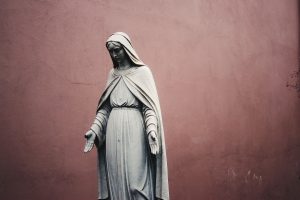Woman lost her job, and ultimately her life, after breast cancer diagnosis. Can she sue?
Kristen Biel of Redondo Beach, California, lost her job at a Catholic school after she was diagnosed with breast cancer. She filed a lawsuit contending the religious institution violated the Americans With Disabilities Act, which she won before losing her life to the disease. The school has appealed the court’s decision and the case is now before the Supreme Court with Biel’s husband Darryl taking her place as the plaintiff.
The Supreme Court will need to decide whether a years-old decision preventing the government from becoming involved in matters of the church is applicable in this case. Courts have traditionally upheld an exception in the law that keeps “ministers” of a faith from bringing employment discrimination claims against religious entities.
The unanimous 2012 Supreme Court decision in Hosanna-Tabor Evangelical Lutheran Church and School v. Equal Employment Opportunity Commission found a teacher was covered by the “ministerial exception,” and could not file a lawsuit against her school.

“The interest of society in the enforcement of employment discrimination statutes is undoubtedly important,” wrote Chief Justice John G. Roberts Jr. “But so too is the interest of religious groups in choosing who will preach their beliefs, teach their faith, and carry out their mission.” He added, “The First Amendment has struck the balance for us. The church must be free to choose those who will guide it on its way.”
“Holding the ministerial exception can be triggered simply by showing that an employee performs ‘important religious functions’ would turn the exception inside out,” Jennifer A. Lipski and Jeffrey L. Fisher wrote in a brief for Biel and another teacher suing the Archdiocese of Los Angeles for age discrimination, Agnes Morrissey-Berru. “Countless employees of religious institutions, not just lay teachers, but also nurses in hospitals, counselors in summer camps, cooks and administrators in social services centers, and other categories of workers, perform duties that their employers sincerely consider important to their religious missions.”
Eric Rassbach, senior counsel for the Becket Fund for Religious Liberty, representing the schools, said the 9th Circuit court’s ruling is “out of line with the Supreme Court’s decision.” He added, “This [exception] has been around for a very long time, and the sky hasn’t fallen in the lower courts. I don’t see why it would fall now.”
The justices in 2012 said “courts should look at the employee’s title, whether the organization considered the employee a minister, whether the employee considered herself a minister and whether the employee’s duties included important religious functions.”
“My wife was hired as a fifth-grade teacher. She wasn’t hired as a ‘minister,’” Biel said. “The first time we heard the word ‘minister’ was after the lawsuit was filed. There’s no one I’ve ever told this to who wasn’t shocked.” He added, “I promised her I would see this to the end. I wasn’t a big fan at first. I just wanted her to concentrate on getting better. But she was passionate about righting a wrong. I promised her at the end that I would see this through, all the way to the Supreme Court.”
Sources:
Does L.A. Catholic school have a religious-liberty right to fire a teacher who gets cancer?


Join the conversation!